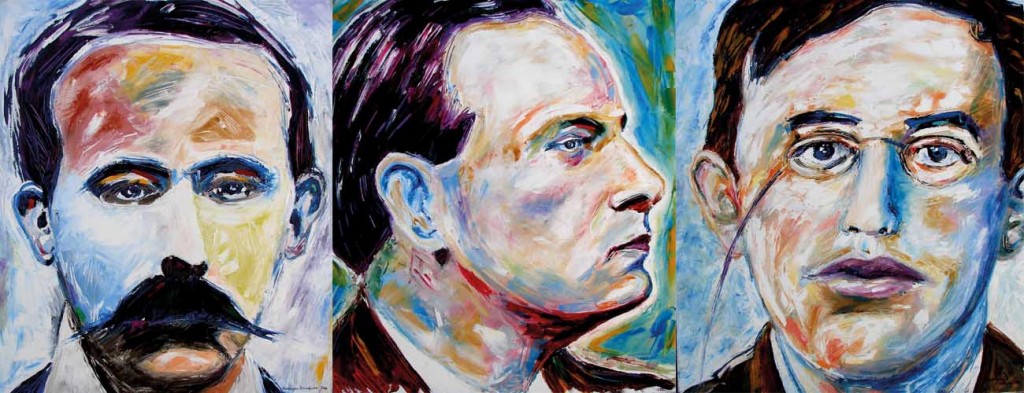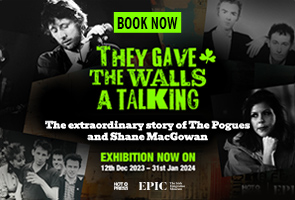Ceannt, Pearse and Plunkett form the Military Committee
Published in Issue 6 (November/December 2014), Reviews, Volume 22By Joseph E.A. Connell Jr
At the start of the First World War, the Irish Republican Brotherhood’s (IRB) Supreme Council determined that a rising should be planned and undertaken in Ireland. While the original purpose of the Volunteers was to ensure that Home Rule was implemented, at least from September 1914 its covert purpose was to mount a rising before the war ended. Some IRB leaders regarded the Irish Volunteers as the material for an army to be employed at the most opportune moment. This decision was made by a small group of determined and dedicated men who were to become the IRB’s Military Council.
The IRB planned the rising; the Volunteers and the Irish Citizen Army made it possible. The establishment of the Volunteers gave the IRB the opportunity to ‘train and equip its members as a military body for the purpose of securing independence for Ireland by force of arms’. P.S. O’Hegarty, a member of the IRB from 1903, wrote:
‘The insurrection of 1916 came because the Supreme Council of the Irish Republican Brotherhood decided that it would come . . . It was the Supreme Council of the IRB which decided the insurrection, planned it, organized it, led it and financed it.’
On 9 September 1914 there was a meeting of the Supreme Council in the offices of Seán T. O’Kelly (although some non-IRB people were also present). It was decided that ‘England’s difficulty is Ireland’s opportunity’ (Theobald Wolfe Tone) and that there would be a rising before the end of the war. Among those present were Éamonn Ceannt, Thomas Clarke, James Connolly, Arthur Griffith, John MacBride, Seán MacDermott, Seán McGarry, William O’Brien, O’Kelly, Patrick Pearse, Joseph Plunkett and James Tobin. A Volunteer ‘Advisory Committee’ was formed. Its original members were Pearse and Plunkett and ‘a considerable number of Volunteer officers’.
By December 1914 Pearse and Plunkett knew that the Volunteer Advisory Committee, with its attendant risk of leaks, had to be discontinued. Early in the summer of 1915, the Executive of the IRB approved Ceannt, Pearse and Plunkett as a ‘Military Committee’. Diarmuid Lynch asserted repeatedly that the Military Council was instituted not by the Supreme Council but by the IRB Executive Council. Desmond Ryan contended that the resolution that ‘we fight at the earliest date possible’ apparently was adopted with some reservations on the part of some members of the Supreme Council. Yet Denis McCullough has said:
‘The decision by the Supreme Council to call a rising at the earliest possible date, after prolonged discussion under my chairmanship, was unanimous. I know my worth. I was there all the time, working and building up the IRB. But the actual rising was the work mainly of four men—Pearse, MacDermott, Connolly and Clarke.’
Some months later, when Seán MacDermott was released from prison, he and Thomas Clarke acted as ex officio members of the Military Committee. After the last meeting of the Supreme Council on 16 January 1916, all additions to the renamed ‘Military Council’ were at its own discretion. After James Connolly’s ‘disappearance and reappearance’ in January 1916 he was co-opted onto the Council. In April Thomas MacDonagh was co-opted, and it thereafter consisted of the seven signatories to the Proclamation. So Thomas Clarke, Patrick Pearse, Joseph Plunkett, Éamonn Ceannt, Thomas MacDonagh, Seán MacDermott and James Connolly comprised the Military Council. Without informing the commandant of the Volunteers, Eoin MacNeill, they planned the Easter Rising to take advantage of ‘England’s difficulty’.
Joseph E.A. Connell Jr is the author of Dublin in rebellion: a directory, 1913–1923 (Lilliput Press, 2006).
Further reading
D. Lynch, The IRB and the 1916 insurrection (ed. Florence O’Donoghue) (Cork, 1957).
F.X. Martin (ed.), Leaders and men of the Easter Rising (London, 1967).
P.S. O’Hegarty, The victory of Sinn Féin (Dublin, 1924).
D. Ryan, The Rising: the complete story of Easter Week (Dublin, 1949).

















